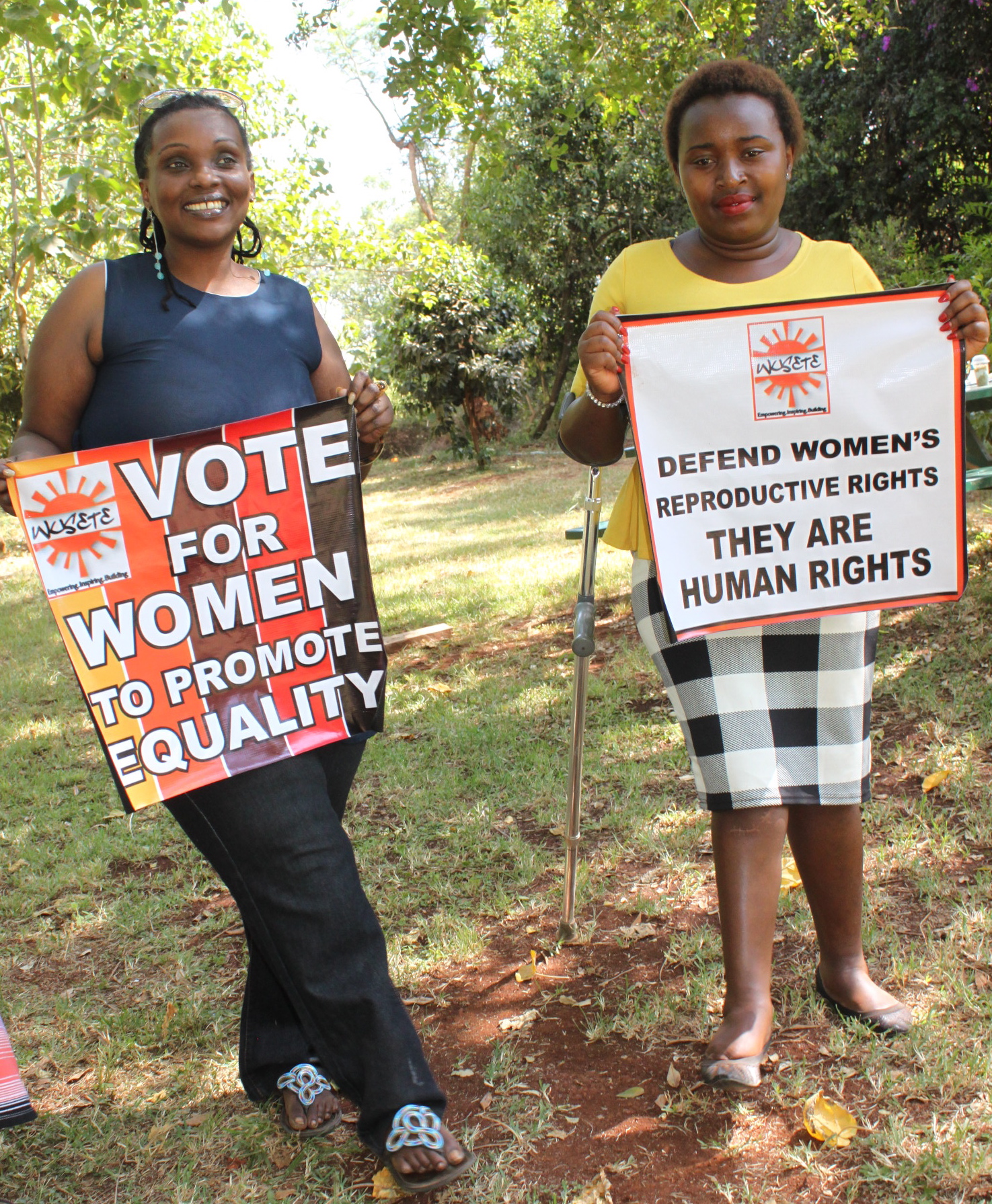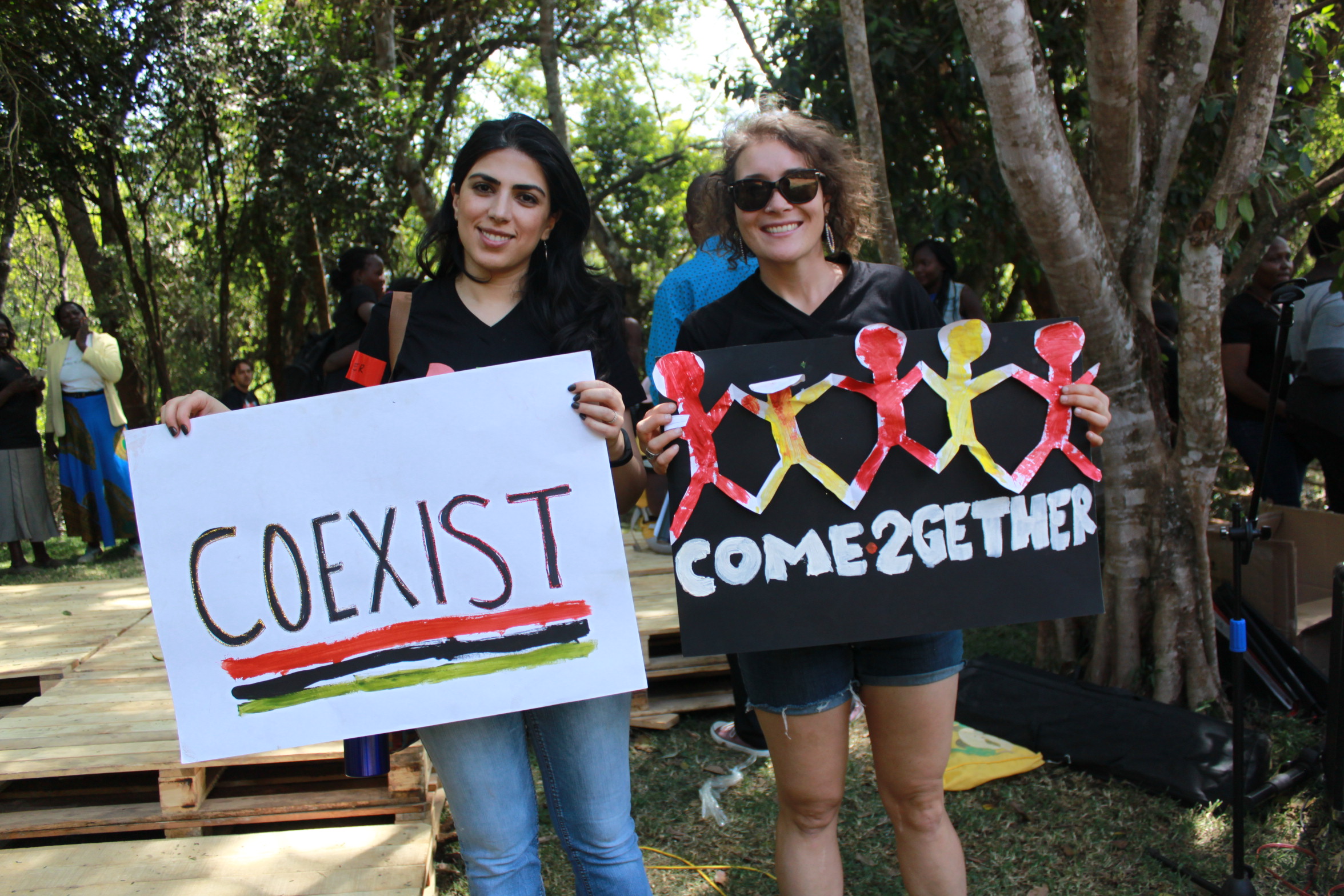NAIROBI, Kenya – On January 21, over 700 people gathered for the Women’s March on Nairobi in Kenya’s Karura Forest, a location significant for its ability to bring Kenyans together to fight for a cause. Over the years, several attempts by private developers to encroach on the land have been successfully thwarted, with the late Nobel laureate Wangari Maathai leading the struggle to preserve the forest until her death in 2011.
As millions of Americans were taking to the streets to call for recognition of the rights of women, ethnic minorities, refugees and immigrants, people with disabilities and the economically impoverished, Kenyans were also demanding their own rights. Organized through the cooperation of a team of Americans and a team of Kenyans, and bringing together many grassroots groups and international NGOs that have previously not worked together, the march in Nairobi aimed to bring attention to the need for reproductive rights, women’s land and inheritance rights and the implementation of the gender-based two-thirds rule in parliament. People also called for an end to sexual harassment and assault, female genital mutilation, the trafficking of women and children, as well as discrimination against the LGBTQ community, sex workers, disabled women, women living with HIV, refugee women and other marginalized groups.

“After [Donald] Trump was elected, there was a need to mobilize globally around the issue of women’s rights,” said Neela Ghoshal, a member of Progressive Americans in Kenya and a researcher on LGBTI rights. “We were concerned to see a president who promoted sexual assault of women through his comments. We felt that his policies would hold back progressive women’s policies already in place. We first saw things through an American lens but soon realized that these issues were affecting Kenyans, too.”

Artist, activist and mother of six Ciro Githunguri, 43, brought one of her sons on the march because “he really wanted to come, and I thought it would be great for him to learn these things from a young age.” As she marched, Githunguri said she appreciated the symbolism of holding Nairobi’s rally in Karura Forest. “Choosing the forest instead of the busy streets was great because I believe women and the earth are very connected,” she said.

“I loved the fact that women were given a chance to talk about their experiences” during the rally, said rights activist Jonah Chinga, 28. “I loved the show of solidarity.”

“Change is long overdue and it sucks to still have to have these protests,” said Wanja Maina, 24, a masters of gender studies graduate. “In my own experience, I have realized that people are still uncomfortable with leaders who are women or disabled, yet they make up more than half of the global population. In future, I would like to see more African men support their women. I would also like to see other women around the world support us like we have supported them.”

After the march, everyone gathered at a picnic site inside the forest to share poetry and music. Playing a traditional wooden instrument, the orutu, musician Labdi Ommes sang the traditional Kenyan song “Winjauru,” which means “Listen to Us,” and Nina Simone’s “Feeling Good.” “I felt that we need to empower each other and to prove that the power really was within us,” she said.

Imma Reid, 29, an activist with rights group AFRA-Kenya, held up a sign reading “Smash heteronormative oppression.” She said: “I chose these words because I believe that sometimes as women, we acquire certain privileges and forget that we might be oppressing others too by enjoying these. I marched today to make sure LGBTI women who are violated and harassed because of their sexuality are represented.”

“It doesn’t end today,” said Ghoncheh Lee, 34, of Progressive Americans in Kenya. “We should take these messages home with us.”
This story has been updated to reflect official attendance figures for the march in Nairobi.
